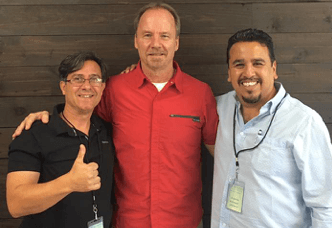Freedom Becomes Real: Experience the Power of the Cross
“How can I experience a deeper work of Christ in my life?” As we know, the message of the Cross is the transforming power of God that brings salvation to everyone who believes. Though we were spiritually dead because of our sins, God brought us life and forgave all of our transgression. We became new creations in Christ, born of the Spirit of God, and delivered from the guilt of sin.
This new life also involves the process of being saved. “For the word of the cross is foolishness to those who are perishing, but to us who are being saved it is the power of God” (1 Cor. 1:18). What does that mean?
SIN IS NO LONGER THE MASTER
God’s will for you and me is to be continually transformed into Christ’s image by the work of the Holy Spirit (2 Cor. 3:18). This continual change was made possible only by what Jesus accomplished on the cross when He broke the enslaving bondage of Sin. From God’s perspective, when Jesus took away the sin of the world, you and I, as sinful persons, also were crucified along with Him (Gal. 2:20). Therefore, whether or not we understand it, the day we were born again we also were separated from Sin as a master who had enslaved us (Rom. 6:6, 9-10). As an evangelist from Uganda remarked, “I am blessed to understand that I am free from Sin as an enslaving master.”
HOW DOES THIS FREEDOM BECOME REAL IN OUR DAILY LIVES?
We can choose to see ourselves in the true light of the cross. In spite of feelings, we can count on and embrace the fact that we already have been separated from Sin as the enslaving master.
We also are released from the demands of the law and its condemnation. For too long many of us have been trying in our own effort to be righteous and acceptable before God (Rom. 7:4-6). When finally embracing this truth, one pastor in the Democratic Republic of Congo (DRC) said, “I have been struggling to live a holy life by keeping the law. Studying Romans, I discovered that the law cannot take me to heaven nor make me righteous. I have to walk by faith in Christ and trust what He has done on the Cross. I have a new life, not under the law but under grace.”
SERVING IN LOVE BY THE HOLY SPIRIT
This freedom becomes increasingly evidenced in our lives as we serve others in love by obeying from the heart the promptings of the Holy Spirit (Rom. 7:6). We are to be men and women who through faith are continually filled with the Spirit and moment-by-moment controlled by His gentle and loving way (Eph. 5:18). We are to “work out” our salvation with the reverential fear of God and a healthy concern to please Him. How can we do that? By God’s power working in us to motivate, enable, and create in us both to will with determination and to effectively do what pleases Him (Phil. 2:12-13). A leader from Nigeria testified, “Finally, by God’s grace I have totally surrendered everything to Him – it has reactivated my total dependence on the Holy Spirit to live a life of victory over sin.”
How can we continue to experience the power of the risen Christ in our lives today? Not by trying to serve and please God in our own strength and goodness. But rather, by relying only on what the Lord Jesus did for us on the Cross. As Paul wrote in Galatians, “I am crucified with Christ by it is not I who live but Christ lives in me” (2:20).
This article is from the Fall 2018 Issue of CoMission Magazine.






